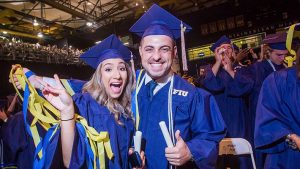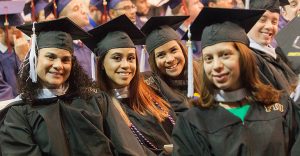The American Heritage Dictionary defines statistics as “the mathematics of the collection, organization, and interpretation of numerical data, especially the analysis of popular characteristics by inference from sampling.”
Many of the College of Business Administration’s undergraduate students view required statistics courses as a barrier that stands between them and their diploma. But they should not fear.
 Christopher Ellis |
Christopher Ellis (EMBA ’97, BS ’92), instructor in the college’s Department of Decision Sciences and Information Systems, teaches business statistics with a twist—using the devilish little puzzle known as the Rubik’s cube to provide students with a real, engaging reason to study statistical methods by giving them a business context in which to apply them.
In Ellis’s Quantitative Methods in Business class, he engages students in a business simulation game in which teams compete in the unlikely service industry of solving Rubik’s cubes for others.
“The purpose of this course is for students to develop their capability to apply statistical thinking to improve business processes,” Ellis said. “I first got the idea to use the Rubik’s cube as a classroom tool when, at a local yard sale, I found a worn, tattered little book from the early 1980s claiming that any Rubik’s cube can be solved using a simple five-step process. Eureka! The idea for the “Jiffy Cube!”—the farcical Rubik’s-cube-solving business—was born.”
As part of the “Jiffy Cube” experience, students learn to use the five key components of statistical analysis: defining the processes, measuring performance, analyzing results, improving the process, and establishing control for permanent improvements.

“The activities give the students many opportunities to put newly developed skills for problem solving and process improvement to work,” Ellis said.
One student, marketing major Martin Giian, who expects to graduate in 2008, found the class both entertaining and practical.
“I learned that statistics is not just about formulas and calculations but that it carries real meaning and application in the business world,” Gilian said.
“I have taken many theoretical classes, but this one made connections between course material and its application in the real world. Thanks to this class, I see statistical processes at work every day—as I drive to school, study for exams, or play soccer.”




